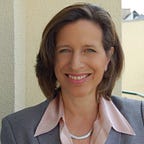Rich countries are awash in COVID-19 vaccines. Time to get them to the rest of the world.
A few weeks back, I got a third dose of COVID-19 vaccine. I did so on the advice of my doctor, who felt I should boost my protection given my history of cancer and a low antibody test result. As with my first jabs, I felt profoundly grateful, but also some deep pangs of guilt. So many worldwide are yet to have a single jab.
For me, getting a booster shot, which were recently approved in the US for vulnerable groups, was as easy as picking up a prescription. I went online and got an appointment for the next day at my local pharmacy. There was little fuss or bureaucracy; New York is awash with vaccine doses.
I’m painfully aware this isn’t the case elsewhere. While in the US, the biggest barrier to getting a jab are anti-vax sentiments, vaccine hesitancy remains a luxury problem for most of the world. Too many countries are still waiting to protect their vulnerable populations, and even their front-line workers.
Around the globe, access to vaccines still all too often spells the difference between life and death. WHO estimates COVID has already killed up to 180,000 health workers worldwide, and points to a stark geographical divide. In Africa, fewer than 10% of health workers have been jabbed. In wealthier countries that figure is more like 80%.
These are preventable deaths. Vaccinating the world could quickly put an end to all this suffering. And with now global production now approaching 1.5 billion doses a month, the problem is no longer supply, it’s distribution. Wealthy nations simply aren’t sharing doses or the means to produce vaccines.
The numbers are stark. WHO says 73% of the more than 5.7 billion vaccine doses given so far have been in just 10 countries, while just 3% of Africans have so far been vaccinated. To end the pandemic, we need to re-balance the numbers, vaccinating 40% of the global population by the end of the year and 70% by mid-2022.
The world’s wealthiest nations have at least said they want to share. The G20 group has pledged to donate 1.2 billion doses to COVAX, the WHO-backed vaccine equity platform. But just 150 million of the promised doses have arrived so far, with no set timeline for delivery of the rest.
Let’s be clear, this isn’t just about charity. COVAX has raised funds and secured contracts with manufacturers to purchase up to 4.5 billion vaccine doses. But these commitments are being neglected in favor of bilateral deals with wealthy nations. This must stop, for all our sakes.
The pandemic has now claimed more than five million lives. COVID-19 is still circulating, with new variants driving fresh waves of infections with the capacity to overwhelm health systems around the world as the global North enters another winter. Normality remains a distant hope in many places.
There’s no reason for us to go on like this. We have it in our power to end the pandemic. All that’s needed is for manufacturers and countries to fulfill their pledges, deliver on contracts and be more generous with technology and know-how so that more countries can produce lifesaving vaccines.
This is not philanthropy. It’s self-interest and common sense. Countries with high vaccination rates are fooling themselves if they think the pandemic is over. With the virus circulating this widely, none of us are safe from the threat of new variants, overwhelmed health systems, or further lockdowns.
Yet safety is within our grasp. The world is wealthy. It is blessed with brilliant scientists. We know we can conquer this disease, avoid countless more untimely deaths, and resume meaningful lives and livelihoods. We’ve suffered enough. Let’s end the pandemic.
